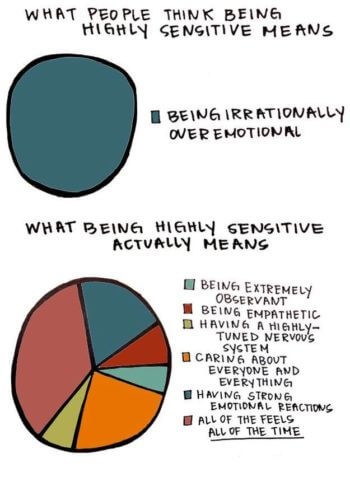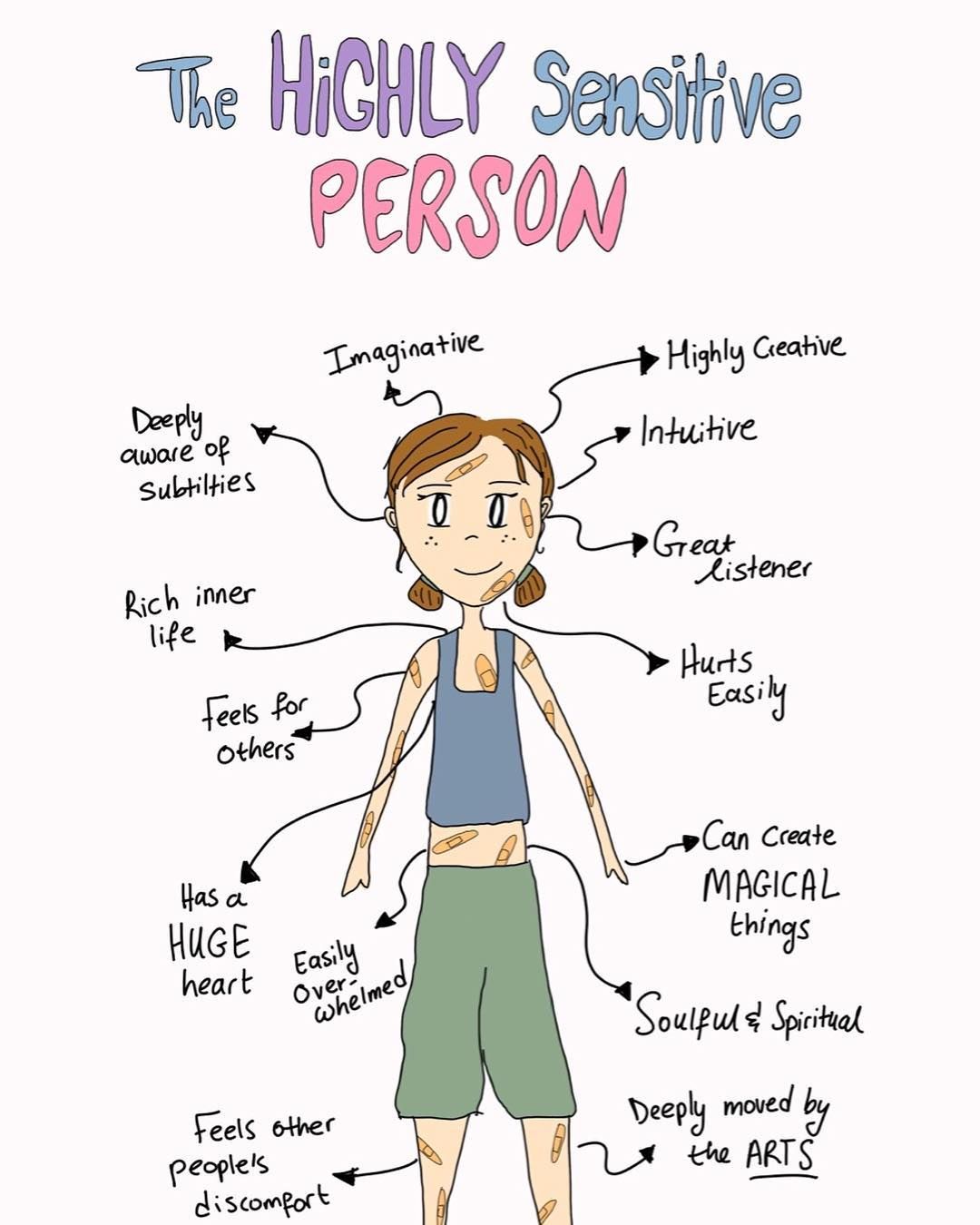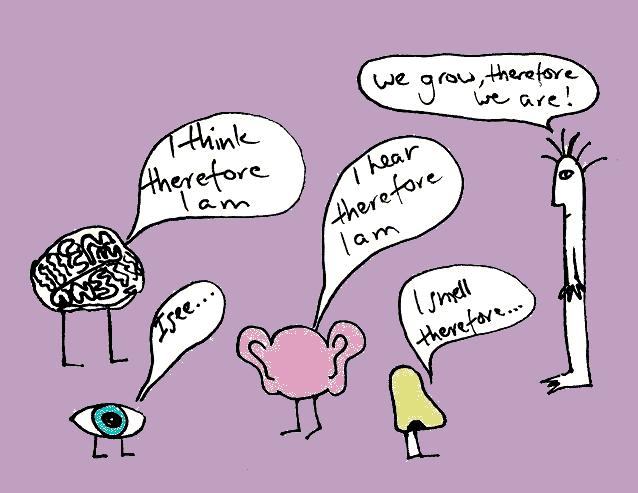Sensitive people are the best people to be around. They are kind, caring, and always looking out for others. However, they can also be their own worst enemy as they tend to take on too much and internalize things a lot. If you are wondering why you are so sensitive or know someone who is, read on as we explore all there is to know about this personality type. We will also offer tips and therapies on how to cope with being sensitive if it becomes too much at times.
Contents
Understanding Sensitive Personality

Sensitive people are those who notice and reflect on the world around them. They tend to be compassionate, empathetic, caring, and continuously searching for meaning in everything that happens around them. However, this type of personality can also have its drawbacks as sensitive people find it hard to switch off from all the stimuli they receive from the outside world. They can be oversensitive to noise, light, and other people’s emotions which can lead to feeling overwhelmed and stressed out.
Empathy And Sensitivity
As we have seen, there are several reasons why someone might be sensitive. This includes having an intuitive personality, being raised in a harsh environment, or lacking social support. However, one of the key aspects of sensitivity is empathy.
Empathy is the ability to understand and share the feelings of another person. It is often described as the ability to walk in someone else’s shoes. This is what makes sensitive people great caregivers and confidants as they can understand others’ feelings without having to be told.
The downside of empathy, however, is that it can often lead to feeling overwhelmed and stressed out. For example, if you are highly empathetic, you might feel the sadness of others deeply which can lead to feeling overwhelmed and stressed.
Signs of Sensitive Personality

If you are wondering if you or someone close to you has a sensitive personality, here are some signs to look out for:
They are reclusive: Due to their need for quiet, sensitive people can often be perceived as shy and reserved.
Empathy and honesty: These individuals can often be so empathetic that they struggle with their own emotions at times. On the flip side of this, they tend to be extremely honest which can make them great confidants.
They take on too much: Due to their compassionate nature, sensitive people often take on more than they can handle, which leads to them feeling overwhelmed and stressed out.
Internalizing: Instead of talking about their feelings and problems, sensitive individuals tend to internalize everything which can lead to depression and anxiety.
Sensitive to noise and light: These individuals have heightened senses which makes them notice things that others don’t. This can include sounds or lights that create a lot of discomfort for them at times.
Types of Sensitive People
There are different types of sensitive people that can be broadly categorized into two groups: those who react emotionally and those who have a strong intuition.
Reactive emotional: These individuals feel everything intensely which can range from happiness to sadness, anger, and love. They often take on others’ emotions easily and can quickly become overwhelmed.
Highly intuitive: These people can pick up on the energy around them and can be so reactive that they tend to become introverts. They have heightened senses which makes it hard for them to cope with noise or light at times.
Six Types of HSPs

A study by psychologist Elaine N. Aron found that there are six types of highly sensitive people (HSPs) which can be broken down into the following groups:
Sensitive to emotional stimulation: These people are easily overwhelmed by their emotions which can range from sadness and anger to joy and love.
Sensitive to physical stimulation: These individuals find it hard to cope with high levels of light, noise, and temperature. They also tend to have a low tolerance for caffeine, alcohol, and drugs.
Sensitive to both physical and emotional stimuli: As the name suggests, these individuals are sensitive to both physical and emotional stimuli. They often find it hard to cope with either type of stimuli and can quickly become overwhelmed.
Sensitive to spiritual matters: These individuals are highly sensitive in a spiritual sense. They may feel a deep connection to the universe and be more in tune with their spiritual side than others.
Sensitive to nature: These people have a strong connection with nature and often find solace in the outdoors. They are also more likely to have an appreciation for beauty and art than other people.
Sensitive to thoughts: These people are easily overwhelmed by their own thoughts which can lead them to feel anxious or depressed. They may also struggle with decision-making as they think too much about every possible outcome before making any decisions.
Exploring Reasons Behind Sensitive Nature

Now that we have an understanding of sensitivity, let’s explore the reasons behind this personality type. These include:
Intuitive: Sensitive people are often highly intuitive which means they can often pick up on the energy around them including others’ emotions and feelings.
Inherited: According to some studies, sensitive people are born with a temperament that is highly reactive and emotional. They experience high levels of empathy which means they can often take on other people’s emotions as their own.
Emotional: These individuals have an emotional brain which makes it hard for them to switch off from incoming stimuli and noise. They can be highly reactive and tend to overthink situations, words, or actions of others around them.
Childhood: Some studies have shown that sensitive people tend to be this way due to their childhood experiences. If a child has been raised in an environment that is harsh or difficult, it can lead to high levels of sensitivity as they grow older.
Risk Factors That Makes One So Sensitive
There are also a few risk factors that can make someone more prone to having a sensitive personality. These include:
Harsh environments: If someone has been raised in a home that is strict or violent, the child can become hyper-alert to any changes in their environment which lead to hypersensitivity and anxiety over time.
Traumatic experiences: If someone has experienced a traumatic event such as physical or emotional abuse, it can lead to them being highly reactive and stressed out. This is because the brain becomes hypersensitive to protect itself from future traumatic events.
Lacking social support: A lack of emotional support from those around us can often lead to feeling overwhelmed and stressed. This is because we need validation and understanding from others to feel okay about ourselves.
Personality Types That Have Sensitive Nature
There are a few different personality types that are more likely to have a sensitive nature. These include:
HSPs: Highly sensitive people make up around 15-20% of the population and are known for their compassionate nature, strong intuition, and heightened senses.
ESFPs: Extroverted sensing personality types are the most common type of sensitive person. They are known for being fun-loving, spontaneous, and energetic.
INFPs: Introverted feeling personalities are known for their idealism, compassion, and strong convictions.
ISFJs: Intuitive Sensing Feeling individuals are responsible and loyal with a deep need to care for others.
Living With Sensitive Nature

There are both pros and cons to living with a sensitive nature. On the positive side, these individuals often have a strong intuition which can be helpful in personal and professional life. They also tend to be compassionate and kind-hearted which makes them good friends and partners. However, on the negative side, they can also be easily overwhelmed and stressed out due to their hyper-reactive nature.
Pros And Cons In Personal Life
On a personal level, living with a sensitive nature has its pros and cons.
Pros Of Being Highly Sensitive In Personal Life
You are compassionate: Sensitive people often have a compassionate nature which makes them good friends and partners. They are often quick to help those who need it and put others before themselves.
You feel things deeply: It’s no secret that sensitive people feel things more deeply than most people do. This means they can enjoy both the highs and lows in life to their fullest potential which is a wonderful thing!
You are highly intuitive: If you have a sensitive personality, then it means you are more intuitive than most people. This can be a great asset in personal and professional life as it means you can read people and situations better than others.
Cons Of Being Highly Sensitive In Personal Life
On the other hand, there are also some challenges associated with living as a highly sensitive person. These include:
Your emotions are easily triggered: Sensitive individuals tend to have a low threshold for emotional stimulation. This means that they can be easily triggered by things that others may not even notice.
You are easily overwhelmed and stressed out: Sensitive people tend to be more reactive than others which means they get overwhelmed or stressed out easier. This can lead to feeling fatigued all the time as well as having difficulty with concentration at work or school.
You take on others’ stress: Another downside to being highly sensitive is that you often take on the stress of those around you. This can be overwhelming and frustrating, especially if people are not always considerate of your feelings.
Pros And Cons In Marriage
When it comes to marriage, having a sensitive nature can either be a pro or con.
Pros Of Being Highly Sensitive In Marriage
You are intuitive: As mentioned before, one of the pros of being highly sensitive is that you are highly intuitive. This can be helpful in marriage as it means you can read your partner and understand their needs better than most people.
You are compassionate: Sensitive people often have a compassionate nature which is beneficial in any relationship, but especially marriage. They are quick to help those who need it and put others before themselves.
You are empathetic: Another benefit of being highly sensitive is that you are more likely to be empathetic. This means that when something happens in your partner’s life, good or bad, it can affect how you feel as well which helps them through tough times together rather than alone.
Cons Of Being Highly Sensitive In Marriage
On the other hand, there are also some potential cons of being highly sensitive in a marriage.
You need a lot of downtimes: Sensitive people often need more downtime than others. This can be difficult if both partners are not on the same page about taking some time for themselves.
You need communication and validation: Another challenge that sensitive couples face is that they often need communication and validation from their partner. This can be difficult if you are both so busy with work or kids that there is no time left over for each other at night or on weekends.
Pros And Cons In Workspace
In the workplace, having a sensitive nature can either be a pro or a con.
Pros Of Being Highly Sensitive At Work
You are attentive: Sensitive people often pay attention to details which can be an asset in the workplace. It means they will notice things that others may miss and will do their job well because of this quality.
You work well under pressure: Sensitive people often work best under pressure which can be a pro in the workplace. If deadlines need to be met, they are more likely to get the job done in time.
Your mood affects your productivity levels: Another benefit of being highly sensitive is that you are more likely to be affected by your mood. This means that if you are feeling good, you will be productive. But if you are feeling down, your productivity levels will likely drop as well.
Cons Of Being Highly Sensitive At Work
On the other hand, there are also some potential cons of being highly sensitive in a workplace setting.
You need downtime: As mentioned before, sensitive people often need downtime to recharge. This can be difficult if your job requires you to be constantly on the go.
You are easily overwhelmed: One of the biggest challenges that sensitive people face in a work setting is that they can become quickly overwhelmed. This may lead to them feeling stressed out and unable to concentrate on their work.
Others take advantage of your qualities: Another downside to being highly sensitive is that others may often take advantage of you. They may know that you are likely to work long hours or take on extra tasks, and so they may ask for more than you can give.
You need communication and validation: Lastly, as mentioned before, sensitive people often need communication and validation from their boss. This can be difficult if your boss is not the type of person who is open to feedback or does not have time for a long conversation.
Pros And Cons In Social Life
In social life, having a sensitive nature can either be a pro or a con.
Pros Of Being Highly Sensitive In Social Settings
You are kind and understanding: One of the best things about being highly sensitive is that you are often kind and understanding towards others. This makes it easy for you to make friends and maintain relationships.
You can read people well: Another benefit of being highly sensitive is that you can read people well. This means that you can understand their feelings and what they are thinking, even if they do not say it out loud.
You are a great listener: Lastly, another pro of being highly sensitive is that you are an excellent listener. When someone wants to talk, you will be there for them and will listen to what they have to say.
Cons Of Being Highly Sensitive In Social Settings
On the other hand, there are also some potential cons of being highly sensitive in social settings.
You need time alone: Lastly, as mentioned before, sensitive people often need time alone to recharge. This can be difficult if your friends are always wanting you to hang out with them or go on trips together.
You can feel overwhelmed: One of the main challenges that sensitive people face in social situations is that they can quickly become overwhelmed. This may lead them to feel stressed out and unable to socialize.
Others take advantage of your qualities: Another downside to being highly sensitive is that others may often take advantage of you. They may know that you are likely to be understanding and helpful, so they may ask for more than you can give.
Coping With Sensitive Nature
If you have a sensitive nature, there are several things that you can do to cope with your sensitivity and live a happy life.
- Therapy options: One option is to seek therapy. There are many different types of therapies available, so you can find one that best suits your needs.
- Movies and books: Some movies have been made about being highly sensitive as well as books written by experts on the subject. Reading about other people’s experiences can help you feel less alone in your own life.
- Talking to a professional: Another option is to talk to a professional about your sensitivity. This can help understand why you are sensitive and how to deal with it.
Tips For Handling Sensitivity
If you are highly sensitive, here are some tips that can help you manage your emotions:
Set boundaries: Another way to manage your emotions is by setting boundaries with the people in your life. This means that you can let them know what you are and are not comfortable with, and they will need to respect that.
Talk about how you feel: Lastly, it is important to talk about how you feel. This can help others understand your needs and why you react the way that you do.
Take time for yourself: It is important to take time for yourself and your own needs, even if it means saying no to social engagements. This will help you recharge and feel more prepared for future social interactions.
You can find ways to be less sensitive: You do not have to remain highly sensitive forever. There are many ways that you can work on managing your emotions so that they do not get the best of you.
Ways For Managing Sensitivity
There are many ways to manage your sensitivity.
Journaling: Another way that can help manage your sensitivity is journaling. This means that you write down all of the things that make you feel stressed out or overwhelmed to process them on paper instead of letting them stay inside as thoughts and feelings only.
Meditation: Meditation is a great way to help you relax and refocus on the present moment. It can help you feel less sensitive by allowing yourself some time alone with no distractions or obligations. You can do this at home, or go somewhere quiet like a park bench or library where people are less likely to bother you.
Yoga: Yoga is another great way to manage your sensitivity. It can help you relax and let go of any tension from the day or week, allowing yourself time alone with no distractions or obligations. You can do this at home, or go somewhere quiet like a park bench or library where people are less likely to bother you.
Take time alone: Lastly, it is important to take time alone. This can be in the form of a vacation, weekend getaway, or even just an hour or two during the day when you do not have anything planned. During this time, you can relax, read, listen to music, or do something that you enjoy without having to worry about anyone else.
Talking To a Professional
If you are finding that your sensitive nature is negatively impacting your life, talking to a professional may be the best option for you. Many different types of professionals can help, such as therapists, counselors, and psychologists.
It is important to seek help if this describes you. Because being highly sensitive can make daily activities like going out in public difficult. And it can make living an enjoyable life nearly impossible.
They will be able to listen to your concerns and offer guidance on how to deal with them. So that you do not feel overwhelmed anymore. This may include medication or other treatments depending on the severity of your sensitivity and how it impacts your life.
Therapy Options
If you are seeking help for your high sensitivity, there are many therapy options available to you.
CBT: The most common type of therapy is cognitive-behavioral therapy (CBT), which helps people change the way they think and behave. This can be beneficial for those with sensitive temperaments because it can help them learn how to manage their emotions more healthily.
DBT: Dialectical behavior therapy (DBT) is another type of therapy that may be helpful for those with sensitive temperaments. This type of therapy focuses on helping people regulate their emotions, which can be difficult for those with high sensitivity.
Family systems therapy: Family systems therapy is also an option that can be helpful for those with sensitive temperaments. This type of therapy focuses on the family as a whole, rather than individual members. It can help to identify and address any patterns that may be contributing to the sensitivity within the family.
Hearing From Experts

If you are seeking help for your high sensitivity, it can be helpful to hear from experts in the field.
Dr. Elaine Aron: Dr. Elaine Aron is a psychologist who has written extensively about high sensitivity and has done extensive research on the topic. She is one of the leading experts on this subject.
Susanne Babbel: Susanne Babbel is a therapist who specializes in treating highly sensitive people. She has written many books on the topic and is considered one of the leading experts in this area.
Case Study
Parenting a Highly Sensitive Child
Parenting a highly sensitive child can be challenging for many reasons. One reason is that children with high sensitivity are more likely to have emotional responses to stimuli than other kids their age (Aron, 1996). They may cry easily or become angry quickly when something doesn’t go their way. Another challenge of parenting these kids is that they tend to be very sensitive to their environment (Aron, 1996). For example, they may not like loud noises or bright lights.
Tips for Parenting Highly Sensitive Child
Because of these challenges, here are some tips on parenting a highly sensitive child:
- Be empathetic and understanding. Parents should try to understand what their child is feeling and why they are acting out.
- Develop a routine that works best for your family. This can help reduce stress levels in the home, which will make it easier to deal with difficult situations when they arise.
- Be aware of triggers that may cause an emotional response from your child (such as loud noises or bright lights). Try to avoid or reduce these triggers as much as possible.
- Create a safe and calming environment for your child. You can do this by providing them with a quiet place to retreat to when they need it, as well as plenty of soothing objects (such as soft blankets or stuffed animals).
Movies And Books
Many movies and books deal with the topic of high sensitivity.
Movies
The Horse Boy: This is a documentary about a family who travels to Mongolia to treat their son’s autism through horseback riding therapy. It highlights the challenges and triumphs of this journey and shows how the family has to adapt to their son’s sensitivities.
The Boy Who Harnessed the Wind: This is a true story about a young boy who builds a windmill to bring water back to his village. It shows how he overcomes many obstacles, including his sensitivity and lack of support from those around him.
Books
The Highly Sensitive Person: This is a book by Susanne Babbel that discusses what it means to be a highly sensitive person. It includes information on how to cope with being sensitive, as well as real-life stories from other highly sensitive people.
The Highly Sensitive Person’s Survival Guide: This is another book by Dr. Elaine Aron that discusses what it means to be a highly sensitive person and how you can cope with your sensitivity in daily life. It also includes information on how to manage stress, develop self-compassion, and set healthy boundaries.
Conclusion
The truth is that there is no right or wrong answer when it comes to why am I so sensitive? It depends on what kind of person you are and how much time has passed since the traumatic experience occurred.
We hope this article helped you in some way and that you continue to seek the support that you need. Sensitivity can be a difficult thing to deal with, but it is manageable with the right tools.
If you are struggling with your sensitivities, there are many options available for you in terms of therapy and treatment. There are also many resources available, including books and documentaries, that can help you understand and cope with your sensitivities.
A Word From Therapy Mantra
Your mental health — Your psychological, emotional, and social well-being — has an impact on every aspect of your life. Positive mental health essentially allows you to effectively deal with life’s everyday challenges.
At TherapyMantra, we have a team of therapists who provide affordable online therapy to assist you with issues such as depression, anxiety, stress, workplace Issues, addiction, relationship, OCD, LGBTQ, and PTSD. You can book a free therapy or download our free Android or iOS app.


